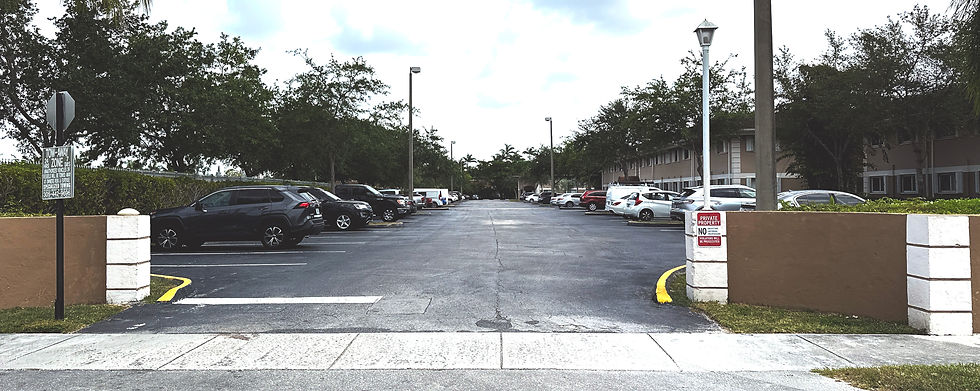Streamlining Parking Security: A Comprehensive Guide to Parking Access Control systems:
- pepitomiami9
- Jul 30, 2024
- 3 min read
Updated: Aug 9, 2024

Parking access control systems have become essential to modern urban infrastructure, ensuring smooth and secure management of parking facilities. These systems help streamline access, enhance security, and improve the overall user experience in bustling cities and commercial areas. This article delves into the various types of access control, their benefits, and how they can transform parking management in your facility.
What Are Parking Access?
Access control are designed to regulate and monitor vehicle entry and exit in parking areas. These systems use a combination of hardware and software to manage who can access the parking facility, how long they can stay, and whether they have the proper authorization. From basic ticket-based systems to advanced automated solutions, parking access control systems are tailored to meet the needs of different environments.
Types of Access Control for parking:
Ticket-Based Systems
How They Work: Vehicles receive a ticket upon entry, which must be validated before exiting. Payment can be made at kiosks or via mobile apps.
Pros: Simple to implement and use; effective for short-term parking.
Cons: Can be prone to ticket loss and requires manual validation.
RFID (Radio Frequency Identification) Systems
How They Work: Vehicles are equipped with RFID tags that readers scan at entry and exit points to allow access.
Pros: Quick and contactless access, reduces wait times, and ideal for frequent users.
Cons: RFID tags can be damaged or lost, and initial setup can be costly.
License Plate Recognition (LPR) Systems
How They Work: Cameras capture and recognize vehicle license plates to grant or deny access.
Pros: High security, no need for physical credentials, and efficient for short-term and long-term parking.
Cons: It requires good lighting and clear license plates; it may have higher initial costs.
Mobile-Based Systems
How They Work: Users access parking facilities through a mobile app with digital credentials and payment options.
Pros: Convenient, allows for remote management, and can be integrated with other digital services.
Cons: Dependent on smartphone availability and connectivity.
Biometric Systems
How They Work: Access is granted through biometric identification, such as fingerprint or facial recognition.
Pros: High level of security and eliminates the need for physical credentials.
Cons: High initial cost and less convenient if the system has recognition issues.
Benefits of Parking Systems:
Enhanced Security: Parking access control systems help prevent unauthorized access and reduce the risk of theft or vandalism. With features like real-time monitoring and automated alerts, these systems ensure that only authorized individuals can enter the facility.
Improved EfficiencyAutomated systems speed up the entry and exit process, reducing congestion and wait times. This efficiency is especially beneficial in high-traffic areas or extensive facilities, where manual processes could lead to delays.
Better ManagementAdvanced systems offer real-time data analytics, which can help facility managers monitor usage patterns, optimize space, and make informed decisions. This data can also be used for maintenance scheduling and operational improvements.
Cost SavingsWhile the initial investment may be significant; automated systems often lead to long-term savings by reducing labor costs and improving operational efficiency. Additionally, better management of parking spaces can lead to increased revenue.
Enhanced User Experience Modern parking provide a seamless experience for users, with options for contactless entry, mobile payments, and real-time updates. This convenience can lead to higher customer satisfaction and repeat business.
Choosing the Right Access Control:
When selecting a parking access control systems, consider the following factors:
Type of Facility: The size and type of your parking facility will influence the system choice. For example, a small lot may benefit from a simple ticket-based system, while a sizeable multi-level garage may require advanced LPR or RFID solutions.
Budget: Evaluate the total cost of ownership, including installation, maintenance, and potential upgrades. Weigh the benefits against the initial investment to determine the best fit for your needs.
User Requirements: Consider the needs of your users, such as whether they require frequent access, have particular accessibility needs, or prefer mobile solutions.
Integration Capabilities: Choose a system that can integrate with other facility management tools, such as payment processing systems and surveillance cameras.
Top Providers of Parking Access Systems:
Several companies specialize in parking solutions, offering a range of products and services:
ParkPlus Solutions: Known for their innovative RFID and LPR systems tailored for commercial and residential parking.
CityPark Technologies: Offers a variety of access control options with a focus on mobile and cloud-based solutions.
SecurePark Systems: Provides comprehensive solutions emphasizing security and real-time management.

Parking systems are crucial for managing and securing parking facilities efficiently. By choosing the right system, you can enhance security, improve operational efficiency, and provide a better experience for users. Investing in modern access control will pay off in the long run, whether you're managing a small lot or an oversized garage. Explore your options, consider your specific needs, and consult with local providers to find the best solution for your parking management requirements.



Comments